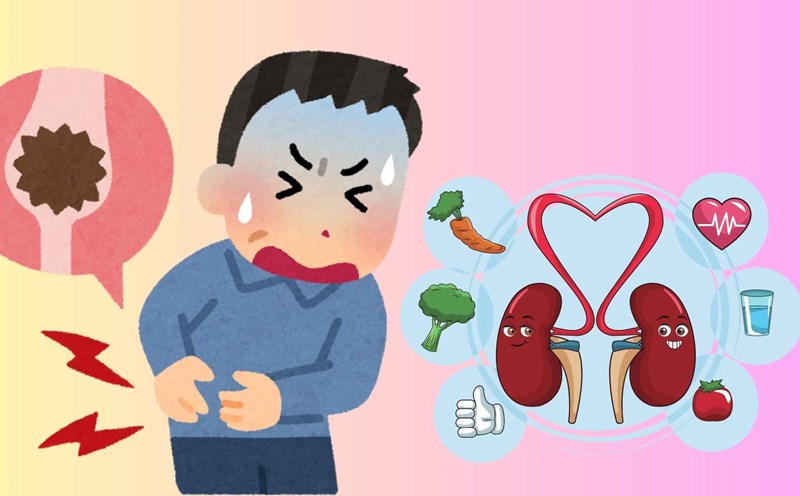In addition to limiting foods rich in purines such as organs and seafood, patients need to increase foods that support kidney function, reduce inflammation, and regulate metabolism. In particular, nutritious nuts are a recommended choice if you know how to use them properly. Here are three types of nuts that are both beneficial for the kidneys and safe for gout patients.
Pumpkin seeds
Pumpkin seeds are rich in magnesium, zinc, antioxidants and omega-3 from plants. These are nutrients that play a role in improving immune function, reducing inflammation, and supporting kidney function. In particular, magnesium helps regulate blood pressure, a risk factor often associated with gout and chronic kidney disease.
A diet rich in nuts like pumpkin seeds can help reduce persistent low-level inflammation in gout patients, while protecting small blood vessels in the kidneys from damage caused by uric acid, says Dr. Shilpa Ravella, a clinical nutritionist at Columbia University Medical Center (USA).
However, patients should choose pure pumpkin seeds, not roasted with salt or seasoned to avoid increasing sodium intake, thereby causing water retention and affecting blood pressure as well as the filtering function of the kidneys.
Flaxseeds
Flaxseeds are rich in omega-3 fatty acids, soluble fiber, and lignans, plant compounds with strong anti-inflammatory properties. This feature makes flaxseeds an ideal food for people with gout who have chronic metabolic disorders.
Research published in the Journal of Renal Nutrition shows that flaxseed supplementation can help improve inflammatory index (CRP) and stabilize blood lipids in chronic kidney patients. In addition, flaxseeds also help control blood sugar, an important factor in gout patients with type 2 diabetes.
Not only does flaxseed support anti-inflammation, it also has the effect of cleansing the intestines and supporting the excretion of waste. This helps reduce the burden on the kidneys in gout patients, said nutritionist Fiona Hunter (UK). However, whole flaxseeds are indigestible, so patients should use a small amount of ground coffee, with a dose of about 1-2 teaspoons per day.
Walnuts
Walnuts are famous for their high content of omega-3 fatty acids, vitamin E, and amino acid arginine, all of which have antioxidant effects, increase blood circulation and protect renal blood vessel endotests. For gout patients, walnuts not only help improve arthritis but also contribute to reducing the risk of chronic kidney damage, a common complication if uric acid accumulates for a long time.
Dr. George Bakris, Director of the Center for High blood pressure and kidney disease at the University of Chicago (USA), recommends: "Supporting nuts such as walnuts can improve endothelial function and help control cardiovascular risk factors in chronic kidney patients, which is clearly beneficial for gout patients".
Patients should only eat about 5-6 walnuts per day, avoid eating them with condensed milk, sugar or salt, spices that can negatively affect purine metabolism or blood pressure.










